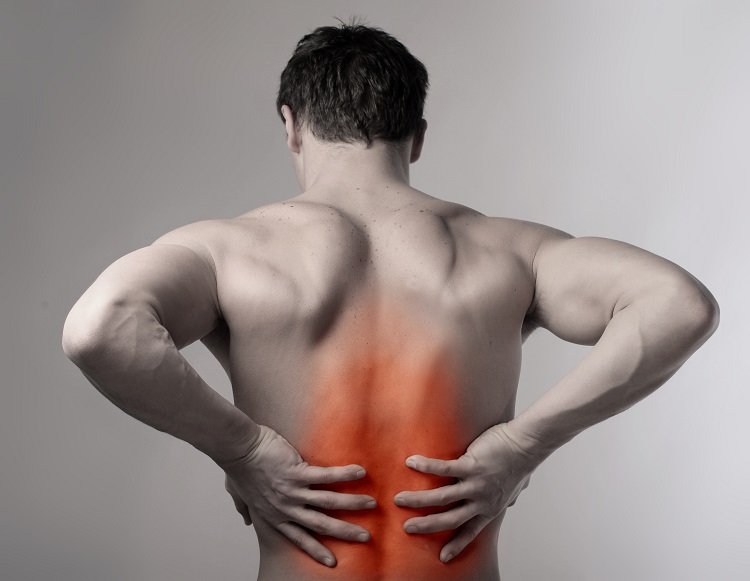
Middle Back Pain
Middle back pain refers to discomfort in the thoracic spine, where the rib cage connects to the chest. It can be acute or chronic, with varying pain levels depending on the cause and severity. With an accurate diagnosis, multiple treatment options are available.
Middle Back Pain Symptoms
If you experience the following symptoms, it may be time to seek medical attention:
- Strained or Irritated Muscles: Lifting heavy objects improperly or repetitive motions can damage muscle tissue and small blood vessels.
- Spinal Stenosis: A narrowing of the spinal canal that can cause nerve compression and pain.
- Injured Discs: A damaged disc may leak its inner material, putting pressure on nerves and tissues.
- Fractured Vertebrae: Trauma or severe spinal degeneration can cause fractures, leading to intense pain.
- Osteoporosis: Weak and brittle bones increase the risk of spinal fractures and pain.
- Aging: Conditions like spinal stenosis become more common with age.
- Infection: Conditions like Spondylitis cause inflammation in spinal joints, leading to pain.
- Spinal Conditions: Scoliosis and other structural issues disrupt weight distribution, causing discomfort.
- Health Issues: Tumors, cysts, and radiculopathy (e.g., sciatica) can contribute to middle back pain.
Middle Back Pain Causes
Common causes of middle back pain include:
- Stiffness and tightness, especially in the morning
- Muscle spasms
- Tenderness
- Numbness
- Shooting pain
- Poor posture
- Weakness
- Shoulder, neck, or hip pain
- Sleeping problems
- Headaches
- Fatigue
In some cases, middle back pain may be accompanied by depression or anxiety. If you experience chest pain, difficulty breathing, jaw pain, loss of bladder control, severe abdominal pain, or leg paralysis, seek emergency medical assistance immediately.
Middle Back Pain Non-Surgical Treatment Options
Risk factors such as family history, pregnancy, obesity, smoking, a sedentary lifestyle, and stress can contribute to middle back pain. Keeping track of symptoms and identifying triggers can help manage pain.
Conservative treatments include over-the-counter medication, ice packs, and heating pads. If pain persists, advanced diagnostic techniques like pain mapping, CT scans, and MRIs can help determine the root cause and inform treatment plans.
Middle Back Pain Minimally Invasive Treatment Approach
While some cases respond to physical therapy and home treatments, others—such as fractured vertebrae or ruptured discs—may require minimally invasive surgery. These procedures use small incisions, resulting in minimal scarring, reduced blood loss, and quicker recovery.
Common minimally invasive procedures include:
- Microspine Endoscopic Discectomy
- Microspine Decompression
- Minimally Invasive Spinal Fusion (MIS Spinal Fusion)
Chronic middle back pain can significantly impact daily life. Seeking timely treatment can prevent complications like permanent nerve damage. Our team of spine specialists is here to support you throughout your healing journey.
We look forward to helping you feel better, faster! CONTACT US
